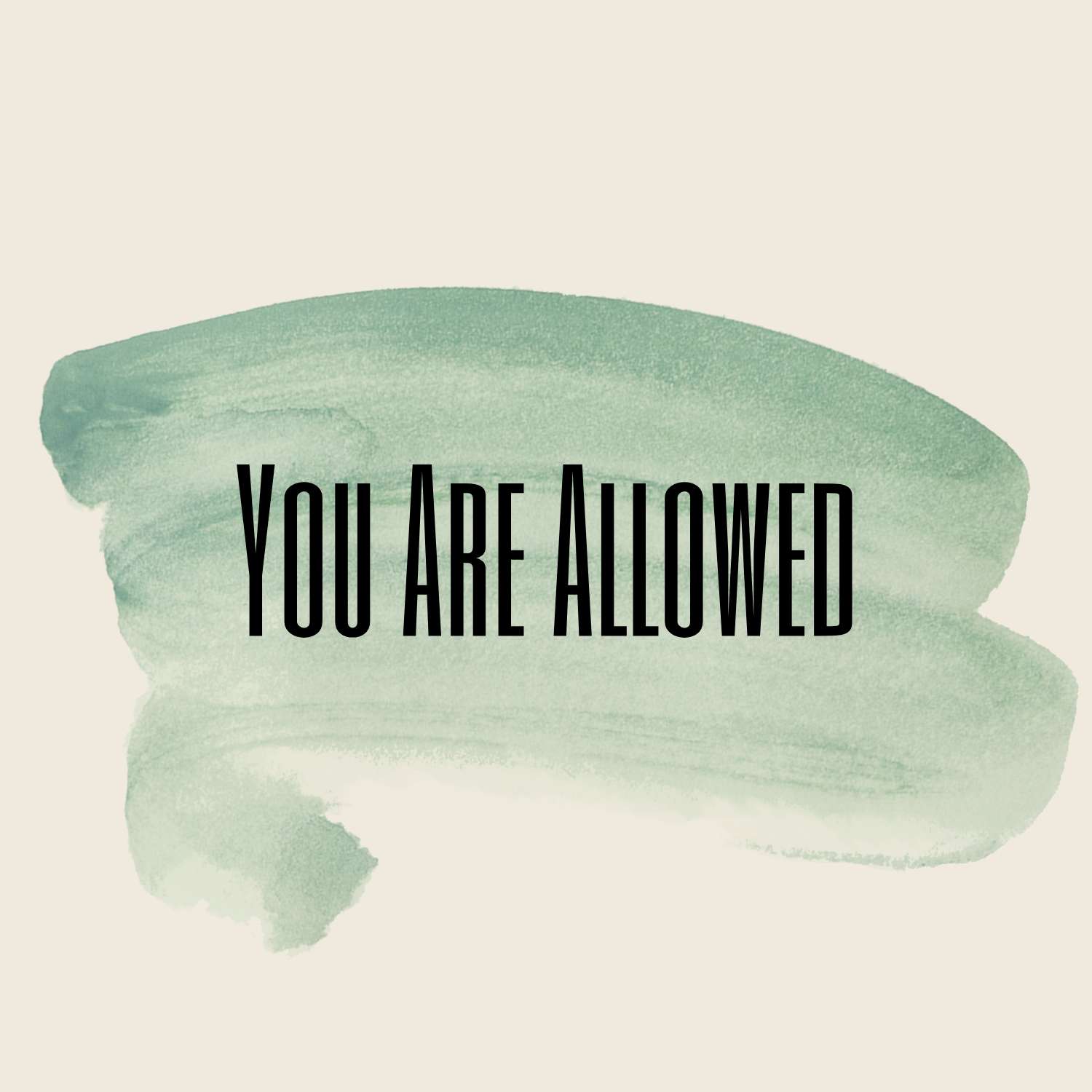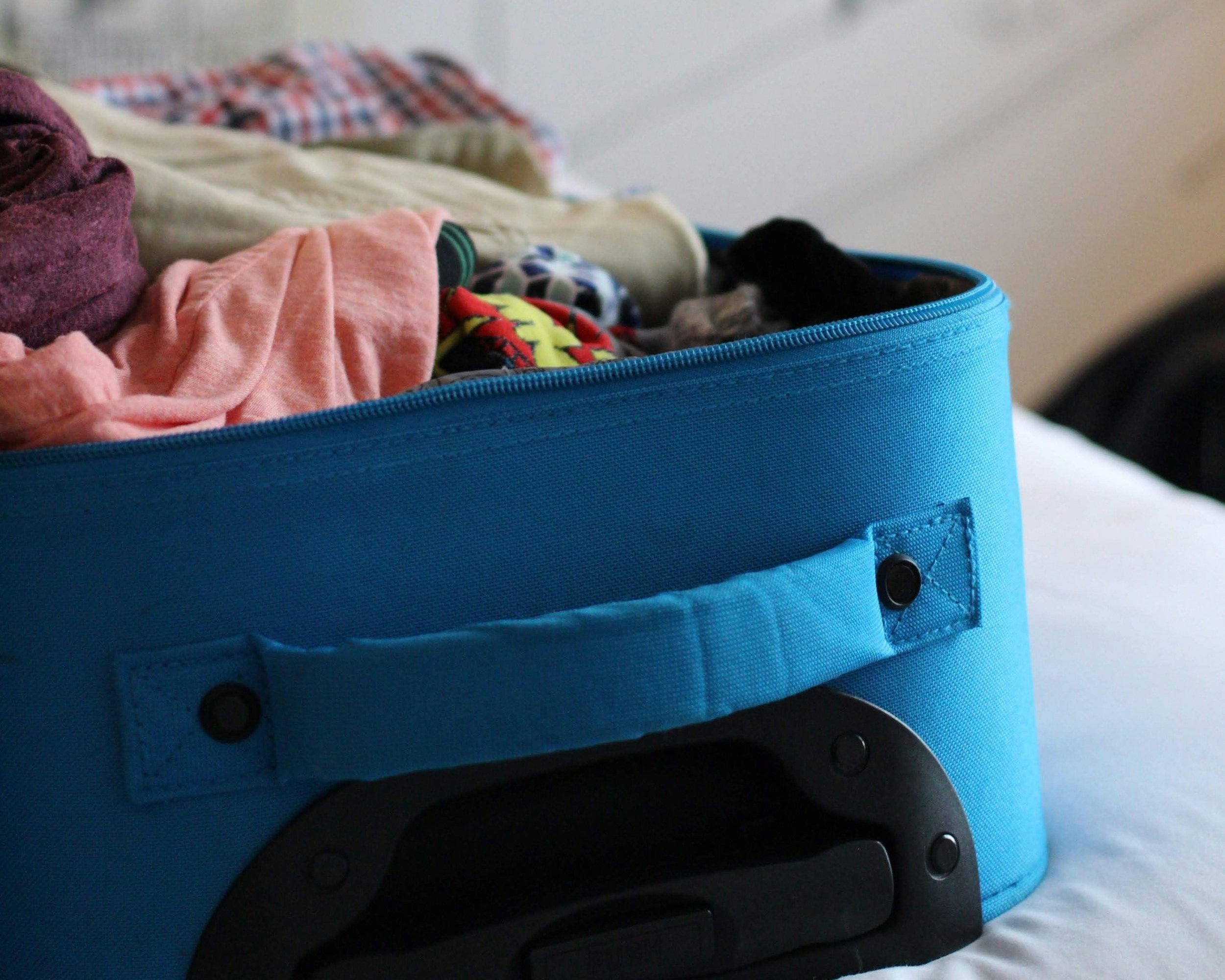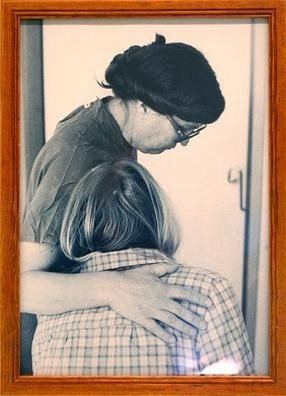
women
Historically birth has been something that only involved women, males were not allowed to part take in this event. In many cultures around the world this is still the norm. And part of me understands why.

on single motherhood
I started my journey into parenthood single. Growing up in a two parent household I wasn't really sure of what it meant to be the only parent in a household. But even before I ever got pregnant, in my late teens, I had a feeling I was going to be a single mom. I don't know if I ever stopped to think that I couldn't do it, or that it would be too hard. I had friends and family that were super supportive and that helped.

skin to skin with your newborn
Skin-to-skin contact means holding your baby naked against your skin, usually under your top or under a blanket. Some know this as kangaroo care or kangaroo mother care (KMC) as it sometimes is called in neonatal care units.
When your baby is born, you will be encouraged to have skin-to-skin contact as soon as possible. Your baby will be able to hear the comforting sound of your heartbeat and voice, which will help calm and relax them. It's never too late to start skin to skin, so if you have been separated from your baby because you or your baby were not in good health or maybe your baby was born prematurely whenever you can place your baby, in only a diaper directly on your skin.

“Am i allowed?”
“Am I allowed?”
This question I’ve heard so many times in different way at different times related to pregnancy and birth. “Am I allowed to say no to the blood glucose test?” Or “Am I allowed to tell the staff I don’t want them to touch my baby after she is born?” Or anything similar.

My breastfeeding journey
Before I found out that I was pregnant with my daughter I thought I wouldn't breastfeed. The thought of breastfeeding felt odd to me. But maybe part of it was that I was young and still getting used to my adult body. I got pregnant when I was 22 and early on in pregnancy I decided that of course I wanted to breastfeed. I don't know what happened, it was like it changed from one day to another, maybe it was the pregnancy hormones. During my pregnancy I read lots of books, most of them about birth but one was specifically about breastfeeding.

There is no wrong way to give birth
There is no wrong way to give birth. This is a sentence I think often and say out loud for time to time. What it means to me is that how you choose to give birth is your choice. I feel like my job as a Doula and a Midwife is to follow your lead, support you and hold space for you. I trust that you know what you need and I will be here to help you to the best of my abilities.

what is a doula?
A Doula is a person that supports the person giving birth and their partner during pregnancy, birth and in some cases postpartum as well. A Doula has no medical responsibility and can be a trained person or a non-trained person. My focus here is on the trained Doula. Most of the Doulas are women, though I have heard of men taking the Doula training, I think this is still quite rare.

All emotions are welcome here
For some people birth is only physical, they see it as a mechanical function of the body. But for most people birth is something transformative. We birth our babies and we birth a new version of ourselves.
Labor and birth can push us into a place we didn’t know existed. It can challenge every fiber of our being, mental, physical, emotional, spiritual. To be present in the room when someone goes through this deep transformation is, to me, magical. I don’t take it for granted. I always express gratitude. It’s like each birth teaches me something even though the journey I’m witnessing isn’t mine. Birth forces us to strip down, to remove all those layers of who we are and who we want to be perceived to be. We are forced to show up as our authentic selves, raw and beautiful. We have to give in to the moment and trust our entire being. There is only one moment, the moment you are in.

family traditions
My parents came from traumatic family dynamics, I think they grew up in survival mode more than anything else. They also both immigrated to Sweden and don't have any extended family here. I don't know if they wanted kids, or I do know. My mother has told me several times she didn't want kids, but then her "biological clock" set in and she decided to have me. I think that in those unconscious choices of becoming parents they didn't consider what kind of parents they wanted to be or what they wanted to give their children in terms of things like traditions. So when I was young there was a lack of tradition in my home. My mother, who is not Swedish, tried to bring me to the local midsummer celebration, but as it's none of my parent's culture it always felt forced, so midsummer is nothing I have continued to celebrate.

What to pack in your hospital bag
If you are planning to give birth in a hospital in Sweden you may wonder what to bring with you to the hospital. I have shot an in depth video that you can view on YouTube as well, but I wanted to give you a short written list as well.

My Own birth
I was born in a hospital in a medium sized city in Sweden 41 years ago. I have heard stories of my birth through most of my life, but over time there has been new information added. When I expected my first child in 2005 I spoke to my mom about my own birth, as many of us do. My mom couldn't hide the disbelief on her face when I told her I was not planning on having an epidural. That's the only time I think my mom mentioned pain when she talked about my birth. She talked about my dad and their friend that was there and that I was in neonatal care for the first couple of days of my life. She talked about breastfeeding, overproduction of milk and selling milk to the hospital. She talked about how neonatal care was in a separate building so in the morning a kind of golf cart trolley picked all the moms up that had babies in neonatal care and took them there. She told me I had jaundice and had to be treated with UV lamps. And back then, in the early 80's mom and baby started in the hospital for a week. She shared a room with three other women, one who she stayed in touch with for many years afterwards.

Trusting your body
When I became pregnant with my daughter at age 22 there was no doubt in my mind that my body could birth her. I had very little fear connected to birth, I only feared having a c-section. But I felt confident I could birth my baby and my affirmation (which at the time I didn’t even know what that was) was “My body knows what to do.” I trusted my body through birth and new motherhood as I had many times before birth.

Ystad BB
I became a Midwife to attend births, but the births I attended as a Midwifery student were not what I was dreaming of. I wanted more softness and trust in the process, I think I found that in Ystad. A deep belief in women's ability to give birth to the babies they carry.

creating safety
For each person what makes them feel safe varies. But we all function in the same basic way: if we feel safe our nervous system works well and as it is supposed to. When we are in a constant state of stress, fighting/flight/freeze our nervous system is in a state of alert and focused on escaping danger. It’s basic human biology.

Home birth in sweden
In Sweden birth at home is quite rare. It is estimated that around 180 births in 2020 were planned home births (this out of an estimated 113 000 births in total in the country that same year). A planned home birth is a birth that was planned to take place in the home with a midwife present. This is not to be confused with unassisted home births that is a birth that takes place at home without any medical personnel present. Most births in Sweden do still take place in hospitals, and I will soon explain more on why this is.

Physical touch
“Your touch may be the only touch that person receives that day.” Working as a nail tech I learned to touch other people’s bodies, strangers. I learned that some want to talk, some one to read, some want to sleep when they get their nails done. I don’t think about my nail tech days that often, but for some reason what my teacher said back then popped up in my head the other day. Touch, such a basic human need that we sometimes forget how important it can be.

Use your b.r.a.i.n.s.
When you are in the hands of health care you may not know which options there are, which decisions you can make, etc. Today I will talk about the very useful tool B.R.A.I.N.S. to make informed decisions.
According to Swedish law you as a patient when you are being treated by health care, any type of health care, are entitled to making informed decisions about your treatment. You are also, legally allowed to say no to part of the health care offered and yes to other parts, without receiving lesser care because you are opting out of certain parts.

My first birth
The birth of my daughter was empowering. I felt so strong after that experience, like I had been a part of a rite of passage into a group I had admired before. My birthing experience was something I looked back on later in life and would use as a motivator “You gave birth, you can handle this, come on now.” It was very positive, yet intense, induced birth. Needless to say we didn't get to read any of the books we had brought for the weekend.

Prepare for birth
Some may say there is no reason to prepare for birth, it never turns out as you want anyway. But I don’t agree. I think preparing for birth is essential to having a good birth experience. Yes, birth doesn’t always turn out the way we plan but having prepared may help you figure out what is important for you and even though things may not go according to your highest wishes there may be part of your wishes that can be accommodated regardless of what happens. Regardless if it’s your first birth or you have given birth before preparing can be helpful. If you have had a traumatic birth experience previously it’s important that you have gotten the support you need to process the events.

three years of being a midwife - what I have learned
When we started our midwifery studies one of our teachers kept saying "Becoming a midwife is not taking on a new profession, it's not a speciality of Nursing, it's an identity.” I think I wasn't the only one who felt that this statement was a bit much.